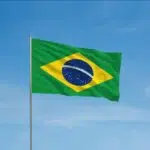Brazilians celebrate Republic Proclamation Day on November 15. On this day in 1889, the opposition triumphed over the constitutional monarchy through a military coup d’état that overthrew Emperor Pedro II and established a provisional government, the Republic of the United States of Brazil. This day is remembered as the day the country’s republic was born. The country would subsequently fight to abolish dictatorial rule, but November 15 is still remembered as a historic day that sparked democracy in Brazil.
History of Republic Proclamation Day
A former Portuguese colony, Brazil adopted a constitutional monarchy when the son of the Portuguese King declared himself the Emperor of Brazil. He then proclaimed independence from Portugal, established an independent Empire of Brazil, and changed his name to Dom Pedro I. He ruled until 1831 when he abdicated the throne and passed it to a regent until his then five-year-old son, Pedro II, came of age.
The Brazilian people’s fight for democracy combined with a burning desire to see slavery abolished in the empire. Despite promises to this effect, Pedro I did not grant the enslaved freedom, and resentment among the working classes grew. The declining Brazilian economy and absence of a male heir from Pedro II’s line only fueled the revolutionary fire. Republican sentiments spread throughout the country and remained unquenched after slavery was abolished in 1888. Brazilians elected famed field marshal Manuel Deodoro da Fonseca, a military war hero, to head the rebellion and replace the monarchy with a republic. Fonseca initially refused the post and even extinguished rebellions. However, he came to sympathize with the republican sentiment and, on November 15, 1889, led a large contingent of soldiers to overthrow then-Chief of the Imperial Cabinet, the Viscount of Ouro Preto. The king was subsequently deposed, and the new Republic of Brazil was established that afternoon in the Rio de Janeiro City Hall. The official proclamation was drafted that night and published in the next day’s newspapers.
The day went down in history as one of the least bloody coups, with only one person wounded, no loss of life, almost no public resistance, and very little pushback from Emperor Pedro II. Today, Brazilians party, raise the national flag, enjoy parades and speeches, and spend the day with family and friends.
Republic Proclamation Day timeline
Britain and Portugal sign a treaty recognizing the Empire of Brazil as an independent empire.
The newspapers supporting the rebellion against the monarchy announce the empire’s demise and the creation of a new federal republic.
A Constitutional Congress amends and approves the provisional constitution written in 1889.
The Brazilian Imperial Family, which had been exiled at the time of the coup, are granted reentry into Brazil by then-president Epitácio Pessoa.
Republic Proclamation Day FAQs
What is Republic Day in Brazil?
Brazil’s Republic Proclamation Day is also called Republic Day and commemorates the end of the monarchy.
When did Brazil become a democracy?
Brazil’s dictatorial regime, established in 1964, fell to democracy in 1985. Brazil officially returned to being a democratic nation in 1988.
Is Brazil an empire?
The land once called the Brazilian Empire — roughly composed of the territories of modern Brazil and Uruguay until 1828 — is now a democratic state.
How to Observe Republic Proclamation Day
Research about it
See what different historians and researchers have to say about the coup and subsequent events. Why do some researchers believe that the monarchy was popular, but Brazilian disinterest in politics led to a lack of protest after the monarchy was overthrown? Check out various studies, books, and papers on the subject to get a more expansive view of Republic Proclamation Day.
Take the day off
Spend the holiday with family and friends, a la the Brazilians. Enjoy some much-needed bonding time to strengthen your relationships. While you’re at it, why not celebrate with a bit of Brazilian fanfare, including traditional Brazilian dishes, songs, and parties?
Explore the country
Discover what makes this country so unique. Learn the language, watch a movie, listen to some songs, and take a trip to a Brazilian museum.
5 Cool Facts About Brazil
The biggest country
The Federative Republic of Brazil has the greatest landmass and largest population in South America.
Border, border, everywhere
Brazil borders every South American country except for Ecuador and Chile.
A unique colonial aftereffect
Decades of Portuguese colonization turned Brazil into the only Portuguese-speaking country in the Americas.
The largest population of Roman Catholics
Consistent research studies show that Brazil has the largest Roman Catholic population in the world, followed by Mexico and the Philippines.
The stars on the flag
The stars on the Brazilian flag are designed to resemble the stars present in the sky over Rio de Janeiro on November 15, 1889.
Why Republic Proclamation Day is Important
It shows off Brazilian pride
Brazilians are incredibly proud of their country. This holiday is yet another day to celebrate their nation and put on a lovely show for the world.
It celebrates more than one event
The Brazilian republic has undergone numerous changes, with the “old republic” spanning from 1889 to 1930. The country celebrates this holiday to commemorate the fall of the Empire, but some also mark the transition from the old to the new republic, which brought about a period of industrialization and development for the nation.
It teaches us about an important historic event
This day established the end of the monarchy in a land that had long been ruled by others — first the Portuguese and then the monarch. This landmark event deserves to be celebrated.
Republic Proclamation Day dates
| Year | Date | Day |
|---|---|---|
| 2025 | November 15 | Saturday |
| 2026 | November 15 | Sunday |
| 2027 | November 15 | Monday |
| 2028 | November 15 | Wednesday |
| 2029 | November 15 | Thursday |

















